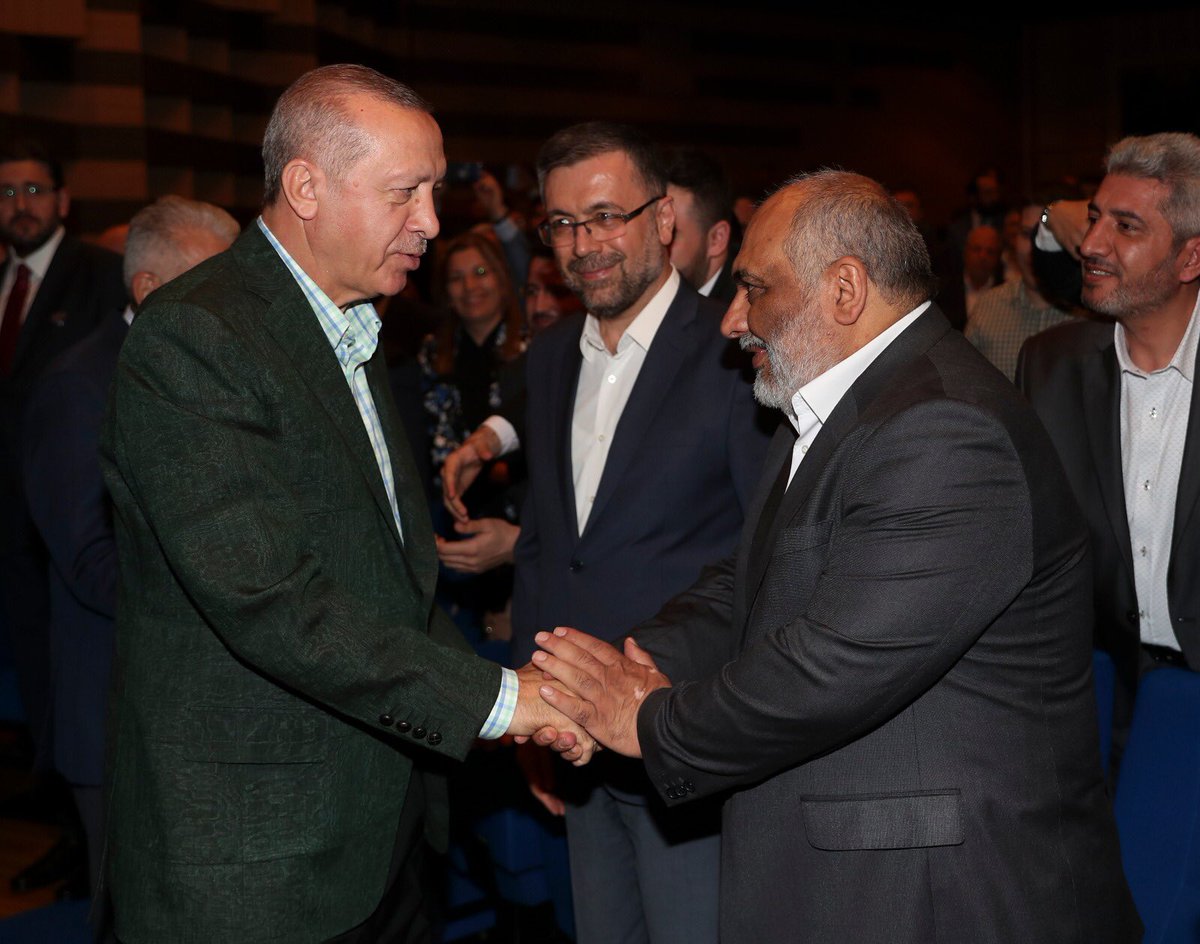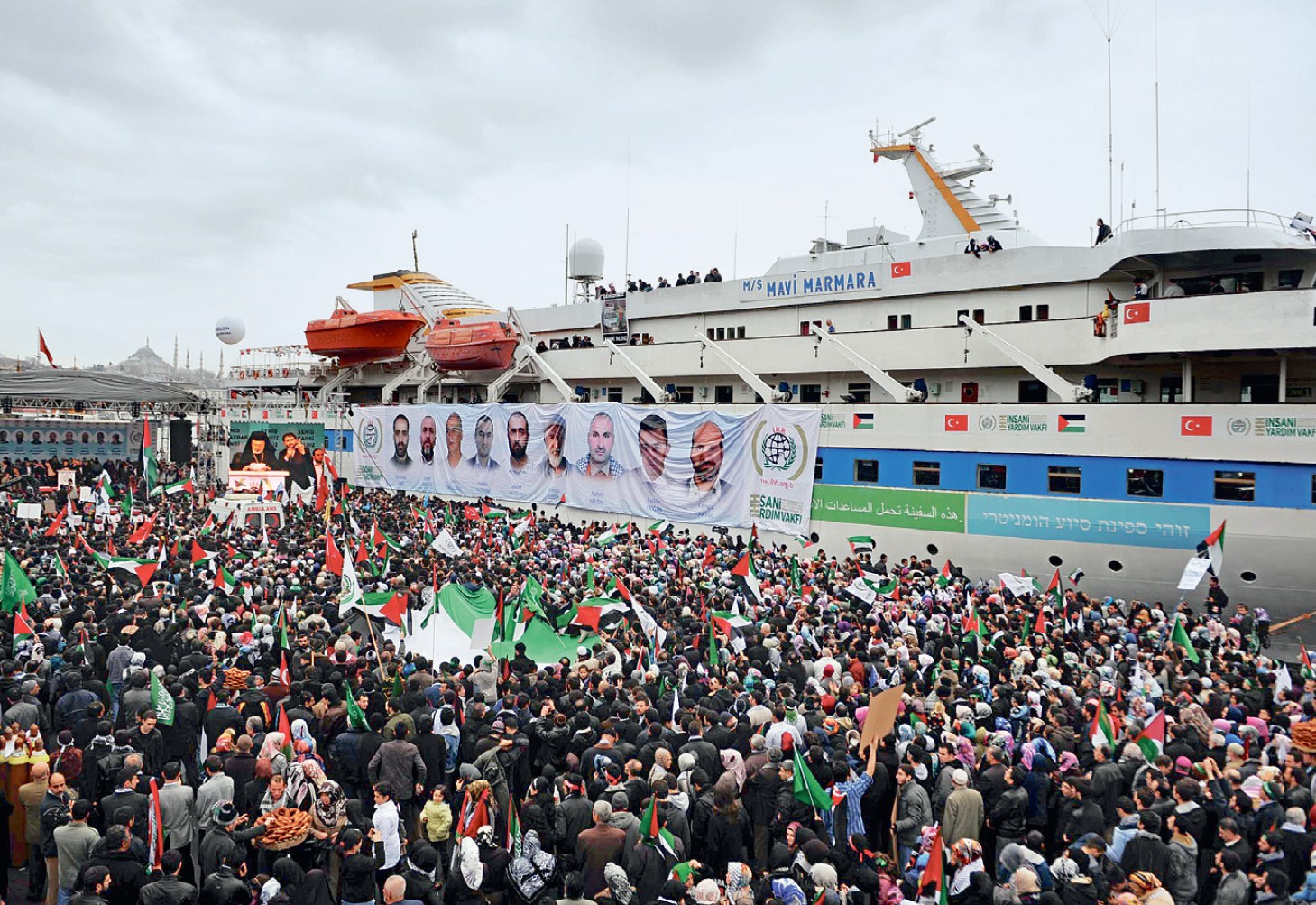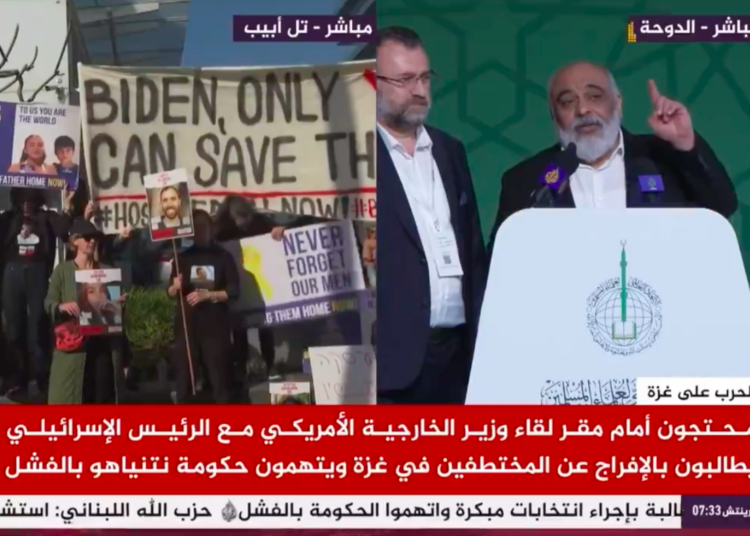Levent Kenez /Stockholm
The leader of a Turkish intelligence-affiliated charity criticized Egypt’s Palestine policy during a speech at a meeting of the Muslim Scholars Union held in Qatar. In the address he also announced plans to organize a fleet of ships with the aim of breaching Israel’s naval blockade on Gaza.
Addressing the Muslim scholars attending the meeting on January 10, Bülent Yıldırım, president of the Foundation for Human Rights and Freedoms and Humanitarian Relief (İHH), a key player in Turkish President Recep Tayyip Erdogan’s international political agenda, urged everyone to take action, including going to Egypt’s border with Israel to demand the opening of the Rafah border crossing and, if necessary, be prepared to pay the price. Advocating putting pressure on Egypt, Yıldırım criticized the silence of the Islamic world to avoid disturbing Egypt. He emphasized that Egypt should feel remorse for its actions.
Yıldırım stated that they had successfully carried out a similar action in 2008, emphasizing their achievements. He mentioned that they are currently in preparations for a new initiative aiming to break the Israeli blockade on Gaza by sea. Yıldırım shared details about their efforts to overcome the obstacles imposed on Gaza and emphasized their commitment to challenging the Israeli blockade through maritime initiatives.
“We are currently purchasing ships, and we will set sail. We will strive to lift the blockade. Once we acquire these ships, people from Europe, America and the Islamic world will join us,” Yıldırım said.
In 2010 the Mavi Marmara flotilla, organized by the IHH with the aim of delivering aid to Gaza, was intercepted by the Israeli navy, resulting in the death of nine Turkish and one Turkish-American pro-Palestinian activists. This incident not only led to a diplomatic crisis but was also extensively exploited by then-prime minister Erdogan as a useful political tool during domestic rallies.

Yıldırım previously claimed that volunteers from various countries had reportedly gone to fight alongside Israel. He had threatened to launch their own volunteer soldier movement against Israel in response to the conflict sparked by Hamas’s large-scale, surprise attack on Israel on October 7.
During a press conference at İHH headquarters on October 13, Yıldırım had claimed that the Palestinian territories had been under occupation for 75 years, questioning the legitimacy of Israel’s presence in the region. He asserted that Hamas was not a terrorist organization but that Israel is, which he described as an illegitimate creation of the Western world. Yıldırım had directed a message to Israel’s supporters, saying every Palestinian issue served as a litmus test and that he had urged people across Europe and America to unite and take to the streets against what he termed “imperialist oppressors.”
Expressing outrage over reports of individuals from countries like Argentina and Peru volunteering as soldiers for Israel, Yıldırım had warned, “Know your place; if we initiate a volunteer soldier movement in response, we can drown you in a single spit. Did you think we would remain silent when women and children are being killed?”
On November 5, participants of the “Freedom Convoy for Palestine,” led by the IHH in support of Palestine, protested against Israel’s attacks on Palestine in front of Incirlik Airbase in Adana, which hosts US Air Force personnel. During the protest some demonstrators attempted to enter the airbase, prompting police intervention. Police responded by using pressurized water and tear gas to disperse the people attempting to get on to the base.
The İHH is a front charity and tool of Turkish intelligence agency MİT and has been under investigation by the Turkish police. It was accused not only of smuggling arms to al-Qaeda-affiliated jihadists in Syria but also of involvement in the transport of wounded Islamic State in Iraq and Syria (ISIS) and al-Qaeda fighters by ambulance from Syria to Turkey.
The Erdogan government helped save the İHH from legal troubles in Turkey while mobilizing resources and diplomatic clout to back the İHH in global operations.

Nordic Monitor previously released a Turkish police intelligence report explaining how the jihadist Libyan Ben Ali group was conducting illegal activities with the help of İHH Vice President Hüseyin Oruç and its then-South and East Anatolian coordinator Selahattin Ozer. According to the report the Ben Ali group moved between Turkey and Syria to provide logistical support, purchase arms and transport wounded fighters for al‐Qaeda‐affiliated terrorist organizations in Syria.
The Turkish police also investigated the İHH’s links to al-Qaeda, but President Erdogan halted the case in 2014. According to the investigation into al-Qaeda cells in Turkey, İbrahim Şen (37), a convicted al-Qaeda terrorist who was detained in Pakistan and transferred to Guantanamo, where he was kept until 2005, was running a recruitment scheme between Turkey and Syria and using the İHH to cover up the terrorist network.
Due to his political cover from the government, Şen was saved from his legal troubles. He was arrested in January 2014 and indicted in October of the same year but let go at the first hearing of the trial in October. Turkish police officers were then dismissed, and the investigation was hushed up.
The İHH had also been flagged by Russia as an organization that smuggled arms to jihadist groups in Syria, according to intelligence documents submitted to the UN Security Council on February 10, 2016. The Russian documents even furnished the license plate numbers of trucks dispatched by the İHH loaded with arms and supplies bound for al-Qaeda-affiliated groups, including the Nusra Front.
The leaked emails of Berat Albayrak, a son-in-law of President Erdogan and former finance and treasury minister, also implicated the İHH in arming Libyan factions. A secret document found in the leaked emails tells the story of how the owner of a bankrupt shipping and container company demanded compensation from the Turkish government for damage his ship sustained while transporting arms between Libyan ports at the order of Turkish authorities in 2011. The document revealed all the details of a Turkish government-approved arms shipment to rebels in a ship contracted by the İHH.












